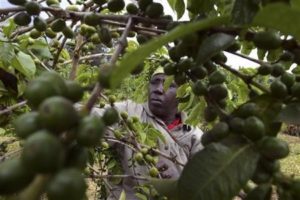
The food producer has come under fire in recent months for using slave labor in the Ivory Coast to produce cocoa beans for chocolate. The company has also used Thai slaves for “fish-farming” that may be in different cat food brands. Fancy Feast cat food contains fish from a Thai supplier that uses slave labor, according to reports.
Now, the company may face new penalties after revealing that slave labor has been used in their coffee products, including Nescafé, Nespresso, Dolce Gusto, Coffee-mate and Senseo.
After this new revelation, the company released the following statement:
“We do not tolerate violations of labor rights and have strongly maintained that forced labor has no place in our supply chain. Unfortunately, forced labor is an endemic problem in Brazil and no company sourcing coffee and other ingredients from the country can fully guarantee that it has completely removed forced labor practices or human rights abuses from its supply chain.”
Nearly one-third of the world’s coffee supply comes from Brazil, and many other companies also may have obtained beans from plantations that use slave labor. For the country to meet the large demand of coffee makers, plantation owners cut costs by providing poor and inhumane working conditions for their laborers.
DanWatch reports that laborers are severely indebted to their employers, have inhabitable living quarters and no protective equipment. These new details came from an investigation of Brazilian farms over several months, which prompted Nestlé to come forth.
Another food supplier released a statement that tried to spin the situation. Jacobs Douwe Egberts and Nestlé account for an estimated 39 percent of the world’s coffee products.
“We are committed to working with governments, non-governmental organizations, suppliers, farmer cooperatives and the entire coffee supply chain to improve the working conditions for coffee farmers throughout the world. We currently support 15 such program in nine countries, including Brazil,” said a Jacobs Douwe Egberts statement.
Nestlé first told DanWatch about the possible slave-produced coffee beans.
“When the companies don’t even know what plantations they’re buying from, I think the problem is much bigger than what we’ve seen here – it’s just the tip of the iceberg,” said Julie Hjerl Hansen, lead researcher on the DanWatch investigation. “The authorities only have the resources to reach out to about half the workers who complain about slavery-like conditions, so that means of all the people who escape, and are able to file a complaint with the ministry of labor, still only half will be helped.”
This all comes after last month’s passage of U.S. bill H.R. 644, which closes loopholes that allowed slave-produced goods into the country. The bill wants to hold companies accountable and hopes to end modern-day slavery. There is only a matter of time before other companies reveal the truth about their suppliers.


